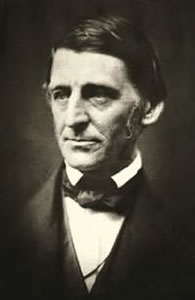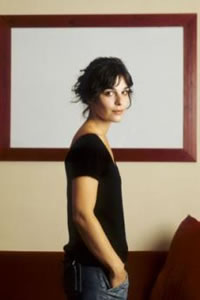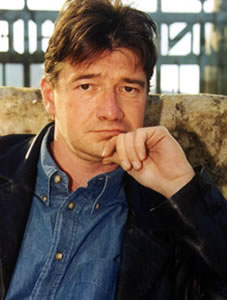De Amerikaanse schrijver Robert Ludlum werd geboren in New York op 25 mei 1927. Hij groeide op in New Jersey. Na de dood van zijn vader stuurde zijn moeder hem naar een kostschool in Connecticut. Op de Cheshire Academy maakte hij kennis met theaterproducties. Vlak voor het afronden van zijn studie aan de Wesleyan University, Middletown, trouwde hij in 1951 met Mary Ryducha, een actrice. Robert en Mary kregen drie kinderen. Robert Ludlum begon zijn carrière als acteur en theaterproducer. Hij speelde in verschillende Broadway-producties en werkte als acteur en producer mee aan 200 televisieprogramma’s. Er zijn meer dan 210 miljoen van zijn boeken (spionagethrillers) gedrukt, en deze zijn vertaald in 32 verschillende talen
Uit: The Hades Factor
“Mario Dublin stumbled along the busy downtown street, a dollar bill clutched in his shaking hand. With the intense purpose of a man who knew exactly where he was going, the homeless derelict swayed as he walked and slapped at his head with the hand that was not clutching the dollar. He reeled inside a cut-rate drugstore with discount signs plastered across both front windows.
Trembling, he shoved the dollar across the counter to the clerk. “Advil. Aspirin kills my stomach. I need Advil.”
The clerk curled his lip at the unshaved man in the ragged remnants of an army uniform. Still, business was business. He reached back to a shelf of analgesics and held out the smallest box of Advil. “You’d better have three more dollars to go with that one.”
Dublin dropped the single bill onto the counter and reached for the box.”

Robert Ludlum (25 mei 1927 – 12 maart 2001)
De Amerikaanse schrijver, filosoof en essayist Ralph Waldo Emerson werd geboren in Boston, Massachusetts op 25 mei 1803. Hij was een van meest invloedrijke denkers van de Verenigde Staten. Na zelf net als zijn vader een unitaristist geworden te zijn, werd hij meer een transcendentalist. In september richtte hij samen met andere intellectuelen de Transcendental Club op. Het tijdschrift van dez club, The Dial, verscheen echter niet voor 1840. Emersons eerste essay, Nature, verscheen al in 1836. Veel van zijn essays kwamen voort uit de lezingen die hij gaf en waarmee hij zijn brood verdiende.
Uit: Nature
To go into solitude, a man needs to retire as much from his chamber as from society. I am not solitary whilst I read and write, though nobody is with me. But if a man would be alone, let him look at the stars. The rays that come from those heavenly worlds, will separate between him and what he touches. One might think the atmosphere was made transparent with this design, to give man, in the heavenly bodies, the perpetual presence of the sublime. Seen in the streets of cities, how great they are! If the stars should appear one night in a thousand years, how would men believe and adore; and preserve for many generations the remembrance of the city of God which had been shown! But every night come out these envoys of beauty, and light the universe with their admonishing smile.
The stars awaken a certain reverence, because though always present, they are inaccessible; but all natural objects make a kindred impression, when the mind is open to their influence. Nature never wears a mean appearance. Neither does the wisest man extort her secret, and lose his curiosity by finding out all her perfection. Nature never became a toy to a wise spirit. The flowers, the animals, the mountains, reflected the wisdom of his best hour, as much as they had delighted the simplicity of his childhood. When we speak of nature in this manner, we have a distinct but most poetical sense in the mind. We mean the integrity of impression made by manifold natural objects. It is this which distinguishes the stick of timber of the wood-cutter, from the tree of the poet.

Ralph Waldo Emerson (25 mei 1803 – 27 april 1882)
De Amerikaanse dichter Theodore Huebner Roethke werd geboren in Saginaw, Michigan op 25 mei 1908. Zie ook mijn blog van 25 mei 2006.
The Storm
1
Against the stone breakwater,
Only an ominous lapping,
While the wind whines overhead,
Coming down from the mountain,
Whistling between the arbors, the winding terraces;
A thin whine of wires, a rattling and flapping of leaves,
And the small street-lamp swinging and slamming against
the lamp pole.
Where have the people gone?
There is one light on the mountain.
2
Along the sea-wall, a steady sloshing of the swell,
The waves not yet high, but even,
Coming closer and closer upon each other;
A fine fume of rain driving in from the sea,
Riddling the sand, like a wide spray of buckshot,
The wind from the sea and the wind from the mountain contending,
Flicking the foam from the whitecaps straight upward into the darkness.
A time to go home!–
And a child’s dirty shift billows upward out of an alley,
A cat runs from the wind as we do,
Between the whitening trees, up Santa Lucia,
Where the heavy door unlocks,
And our breath comes more easy,–
Then a crack of thunder, and the black rain runs over us, over
The flat-roofed houses, coming down in gusts, beating
The walls, the slatted windows, driving
The last watcher indoors, moving the cardplayers closer
To their cards, their anisette.
3
We creep to our bed, and its straw mattress.
We wait; we listen.
The storm lulls off, then redoubles,
Bending the trees half-way down to the ground,
Shaking loose the last wizened oranges in the orchard,
Flattening the limber carnations.
A spider eases himself down from a swaying light-bulb,
Running over the coverlet, down under the iron bedstead.
The bulb goes on and off, weakly.
Water roars into the cistern.
We lie closer on the gritty pillow,
Breathing heavily, hoping–
For the great last leap of the wave over the breakwater,
The flat boom on the beach of the towering sea-swell,
The sudden shudder as the jutting sea-cliff collapses,
And the hurricane drives the dead straw into the living pine-tree.

Theodore Roethke (25 mei 1908 – 1 augustus 1963)
Portret door Mike Nease
De franse schrijfster Claire Castillon werd geboren op 25 mei 1975 in Neuilly-sur-Seine. Over haar leven is nog niet zoveel bekend. Volgens haar zelf houdt zij van de eenzaamheid. De onmogelijkheid een ander echt te bereiken en van geluk door intermenselijk contact zijn dan ook terugkerende thema’s in haar werk.
Uit: Pourquoi tu m’aimes pas? (2003)
« C’est à l’enterrement de Rodrigue, où la classe était chargée de la chorale que j’ai pu approcher Laurette. Elle pleurait et ça l’empêchait de chanter.
Je lui fis remarquer tout bas :
– Pleure pas, tu chantes faux.
Elle me décocha un regard insoutenable, plein de violence et d’incompréhension, et s’arrêta net de pleurer. Elle se remit à chanter juste. Elle était belle en noir, elle était sûrement plus belle toute nue, mais je l’aimais bien comme ça, veuve et perdue. Je lui pris la main. Elle se laissa faire. Je la tins pendant toute la cérémonie, puis à la mise en terre, puis lors du retour en bus, puis à la descente du bus, et, quand elle essaya de me lâcher dans la salle de classe, je la serrai plus fort. Je m’assis à côté d’elle, sa main gigotait dans la mienne, je sentais son pouls, c’était bon. J’étais droitier, elle aussi. Ça tombait mal. On allait devoir se séparer pour écrire la leçon. Je décidai de ne pas en tenir compte. Comme elle se tortillait sur la chaise, je lui murmurai d’arreter de gigoter, on allait se faire coller et elle serait bien avancée. Elle prit son stylo dans l’autre et ne se débrouilla pas si mal. »
Werk o.a. : Le grenier (2000), Je prends racine (2001), Vous parler d’elle (2004)

Claire Castillon (Neuilly-sur-Seine, 25 mei 1975)
De Oostenrijkse schrijver en essayist Egyd Gstättner werd geboren op 25 mei 1962 in Klagenfurt. Daar studeerde hij ook filosofie, psychologie, pedagogie en germanistiek. Tijdens zijn studie publiceerde hij al in bladen als manuskripte, protokolle en Literatur und Kritik. Sinds 1989 is hij zelfstandig schrijver van voornamelijk essays en satirisch proza. Zijn werk verschijnt in o.a. Süddeutsche Zeitung, Die Zeit, Die Presse, Falter en Die Furche
Uit: Herzmanovskys kleiner Bruder und andere Geschichten von Künstlern, Müßiggängern und Abenteurern
„Politisch bin ich – mit Altmeister Grünmandl gesprochen – vielleicht ein Trottel: Bei sämtlichen Volksbefragungen, Abstimmungen, Urnengängen, Wahlen meines Lebens bin ich auf kommunaler, regionaler, nationaler, internationaler Ebene ausnahmslos bei den Wahlverlierern und denen gewesen, die sich dem politischen Willen der Mehrheit beugen mußten. Urnengänge erzeugen bei mir automatisch Abbruchstimmung. Immerhin hält beugen fit und regt den Kreislauf an. Und zu den Favoriten, den Siegern und den Mächtigen zu halten wäre ordinär. Manchmal habe ich es mit meinem exotischen Kreuzchen auf Erdrutschniederlage und Debakel förmlich angelegt, das ist mein gutes Recht als Demokrat. Ganz besonders überfordert mich offen gesagt die europäische Europapolitik. Damals, 1994, habe ich, weil links und rechts alles so enorm auf historisches Verantwortungsbewußtsein gemacht haben und so viele ebenso gut wie seriöse Argumente sowohl für als auch gegen den Beitritt Österreichs zur Europäischen Union gebracht haben, sowohl ja als auch nein angekreuzt. Ich nehme an, mein Votum war bei aller Weisheit und Weitsicht ungültig, aber auf komplizierte Fragen gebe ich eben komplizierte Antworten. Das ist mein gutes Recht als Demokrat.“

Egyd Gstättner (Klagenfurt, 25 mei 1962)
